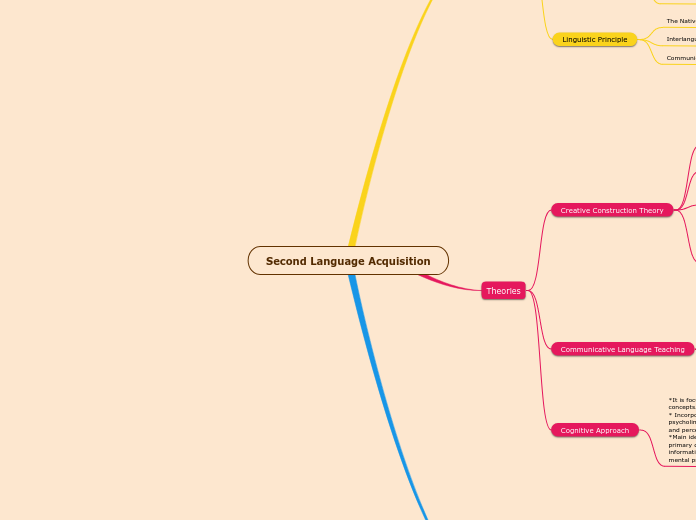Second Language Acquisition
Principles
Cognitive Principle
Atomaticity
Meaninful Learning
The anticipation of Reward
Intrinsic Motivation
Strategic Investment
Affective Principle
Language Ego
Self-Confidence
Risk-Taking
The Language Culture Connector
Linguistic Principle
The Native Language Effect
Interlanguage
Communicative Competences
Theories
Creative Construction Theory
By Stephen Krashen in 1983
Based in the assumption that language acquisition is innately determind.
Krashen distinguished between Acquisition as a subconscious process and Learning as a conscious process.
Krashen's Input Hypothesis
The Acquisition- Learning Hypothesis
The Monitor Hypothesis
The Natural Order Hypothesis
The Input Hypothesis
The Affective Filter Hypothesis
Communicative Language Teaching
Based on the idea that language learning successfully comes through communicate real meaning.
Advantage: Increase of fluency in target language so the learners are more confident when interacting.
Communicative Activities: Find Information, break down barriers, talk about self and learn about culture.
Cognitive Approach
*It is focus in the undestanding of information and concepts. * Incorporates forms of knowing: memory, psycholinguistics, thinking comprehension, motivation and perception. *Main ideas of Cognitive Approach:1 Thoughts are the primary determinants of emotions and behavior. 2 The information progressing is a common description of mental process.
Leves of Language Acquisition
Grammatical Acquisition
Phonological Acquisition
Morphological Acquisition
Subtopic
